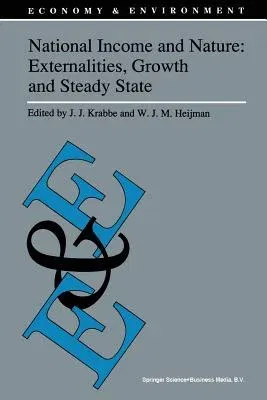National Income and Nature: Externalities, Growth and Steady State (Softcover Reprint of the Original 1st 1992)Paperback - Softcover Reprint of the Original 1st 1992, 9 November 2012

Qty
1
Turbo
Ships in 2 - 3 days
In Stock
Free Delivery
Cash on Delivery
15 Days
Free Returns
Secure Checkout
Part of Series
Economy & Environment
Print Length
233 pages
Language
English
Publisher
Springer
Date Published
9 Nov 2012
ISBN-10
9401051437
ISBN-13
9789401051439
Description
Product Details
Book Edition:
Softcover Reprint of the Original 1st 1992
Book Format:
Paperback
Country of Origin:
NL
Date Published:
9 November 2012
Dimensions:
23.39 x
15.6 x
1.32 cm
ISBN-10:
9401051437
ISBN-13:
9789401051439
Language:
English
Location:
Dordrecht
Pages:
233
Publisher:
Series:
Weight:
353.8 gm

